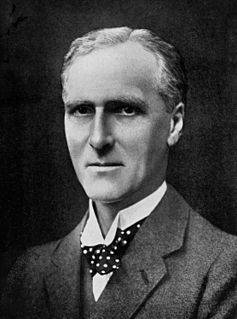A Quote by Albert Schweitzer
Where possible Paul avoids quoting the teaching of Jesus, in fact even mentioning it. If we had to rely on Paul, we should not know that Jesus taught in parables, had delivered the sermon on the mount, and had taught His disciples the 'Our Father.' Even where they are specially relevant, Paul passes over the words of the Lord.
Related Quotes
Timothy's great value was that he was always willing to go anywhere; and in his hands a message was as safe as if Paul had delivered it himself. Others might be consumed with selfish ambition; but Timothy's one desire was to serve Paul and Jesus Christ. He is the patron saint of all those who are quite content with the second place, so long as they can serve.
He will be the best Christian who has Christ for his Master, and truly follows Him. Some are disciples of the church, others are disciples of the minister, and a third sort are disciples of their own thoughts; he is the wise man who sits at Jesus' feet and learns of Him, with the resolve to follow His teaching and imitate His example. He who tries to learn of Jesus Himself, taking the very words from the Lord's own lips, binding himself to believe whatsoever the Lord hath taught and to do whatsoever He hath commanded-he I say, is the stable Christian.
In 56 A.D. [the apostle] Paul wrote that over 500 people had seen the risen Jesus and that most of them were still alive (1 Corinthians 15:6ff.). It passes the bounds of credibility that the early Christians could have manufactured such a tale and then preached it among those who might easily have refuted it simply by producing the body of Jesus.
Jesus and Paul were serious dudes. They had teeth missing. Jesus was a carpenter, Paul was in prison. These guys didn’t eat tofu dogs and bean sprouts. They didn’t play tennis. If there were trucks back in their times, they would have been doing driveway lube jobs on a Saturday afternoon. Same thing with King David. Yeah, he might have played a lyre, but he slaughtered thousands of guys.
As Paul says, even though we as human beings know God, we refuse to acknowledge him. That's what Peter did. He refused even to "know" Jesus! Peter's failure reflects all our failure. It forces us to face the reality about ourselves. But the point of the story is that Jesus foretold this - he knew it was coming. And Jesus forgave Peter, when Peter confessed his love for Jesus. So the story illustrates both the horrible nature of sin, and the amazing reality of grace. That's essential to the whole meaning of the gospel.
(Offensive Coach) Paul Hackett realized that Joe Montana knew more about the offense than he did, but when the meeting was over, Paul saw that Joe had taken three pages of notes. He documented exactly how Paul wanted to run the play, as well as all of the basics of it and its details. That's what a professional does.
Another thing I like to say to my students is this: "How many Corinthians read Paul's letters?" The answer is none. They couldn't have cared less! There aren't even any Corinthians left, but Paul's letters persist. Paul was not a professional writer. He was called to something, and he sent his letters. That's a good way to look at it. That you might be making something that nobody cares about, but you have to do it. It's not that people should care, but that you should care.
In Ephesians 5, Paul shows us that even on earth Jesus did not use his power to oppress us but sacrificed everything to bring us into union with him. And this takes us beyond the philosophical to the personal and the practical. If God had the gospel of Jesus's salvation in mind when he established marriage, then marriage only 'works' to the degree that approximates the pattern of God's self-giving love in Christ.
I love a statement by the apostle Paul, in the Book of Philippians in the Bible. I think the Corinthians had been writing to Paul, telling him that old men were chasing young women, nobody was tithing - and all that must have run Paul crazy. He wrote back and said, "If there be anything of good report, speak of these things." That's one of my principles.It's another discipline that I encourage myself to employ - to, as much as possible, say the courteous thing, and then be it.







































